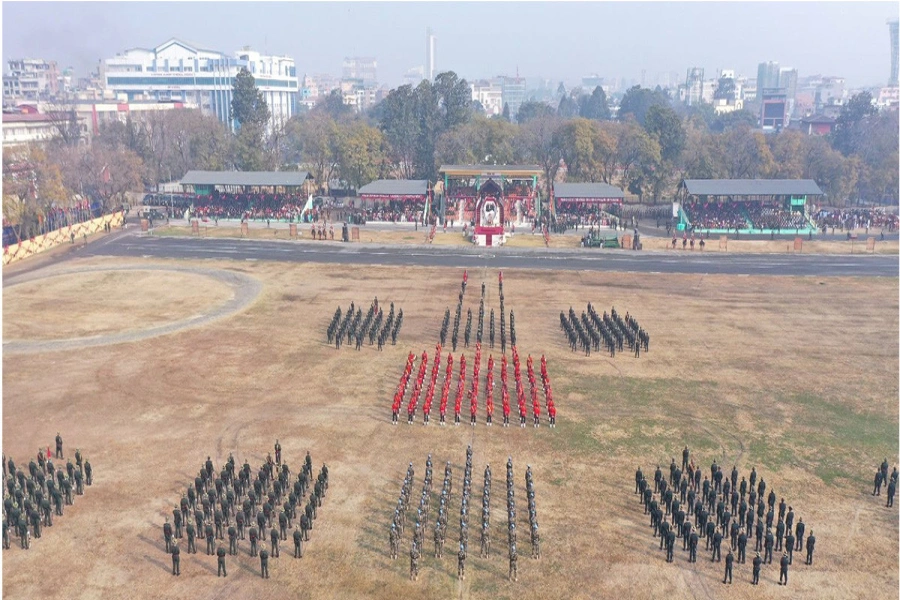Donald Trump’s 47th presidency sends a hint of change in American foreign policy and possible shift in the existing international order. Recently his State Secretary, Marco Rubio’s statement of a multi-great power world questioned unipolar American order. Furthermore, Defense Secretary, Pete Hegseth, rounded off Rubio by refraining America from European security. Moreover, Trump’s executive orders to curb the international aid via funding freeze to USAID, and withdrawal from the United Nations agencies, has developed a confusion in the international order.
Auto-Iconoclasm of the liberal order?
Henry Kissinger once said that the transatlantic partnership after the second world war was the great contribution of statesmanship as neither Europe nor the US by themselves were able to bring a solution to the chaos. He was referring to the international order led by America with European partners. America led the creation of key international institutions like the United Nations, and the Brettenwood System (World Bank and IMF). NATO framed the security alliance of America with Europe and contained the influence of communism.
Today, President Trump broke the convention and caught European allies off guard by unilaterally initiating peace talks with Russian President Vladimir Putin. Further, his defense secretary called European allies to step into the arena and take ownership of the continent.
Richard Fontaine calls it a trans-Atlantic divorce proceeding whereas Stewart Patrick sees it as the death of the America made world. The German President accused America of holding a different world view than Europe. Therefore, a pertinent question arises whether America itself is gradually destroying the self-made international liberal order.
Or is it too early to postulate the American stance? One side of the coin is American liberal values and international institutions will revert back against Trump’s foreign policy. However, it is never late to discuss the impacts of this auto-iconoclasm.
A Multi-polar world
Hamas welcomes Trump's retreat from mass displacement plan

A multipolar world is a plausible possibility. China and Russia have long questioned American unipolarity and promoted the concept of a multipolar world. Post cold war China introduced the New Security Concept which promoted multipolarity against US dominance. In 1997, Russia joined the Chinese outlook and opted for a “new and universally accepted security concept”. In 2024, Chinese foreign minister Wang Yi told the press that China-Russia relationship moves ahead towards multipolarity. China’s neighbor India alludes to a shift towards a multi polar world. Surprisingly, Trump’s state secretary Marco Rubio’s statement of a world with multi great powers aligns with the Chinese, Russian and Indian worldview.
But how does it function? Will the multi-polar world, without US leadership, bring back the old balance-of-power configuration? For power to distribute equally in the system, states have to either balance off another state’s power or bandwagon.
Just like Great Britain’s foreign policy in the 19th century prevented any single power from dominating the continent. Britain formed a coalition with other countries to counter France’s expansion under Napoleon Bonapart. Later, during the Crimean War, the British allied with France and the Ottoman empire against Russia.
But is it possible today to configure a balance? Today, the world is far too integrated than the nineteenth century. The European Union is dependent on Russian energy (especially before the Ukraine crisis), Chinese imports and American security (if not altered now). Similarly, India depends on Russia for energy and defense whereas its largest trade partner is the United States.
These multifaceted integrations create structural constraints in balancing or bandwagoning in a multipolar world. Moreover, today’s cyber world, nuclear power, and Artificial Intelligence are new variables to consider while framing a new balancer or bandwagoner.
A New Unipolar Hegemon
The exit of American leadership creates a vacuum in the international system. Another discussion would be can another country replace the global hegemon? Russia is struggling amid ongoing Ukraine war. At this moment, China awaits in the power queue. However, China has demonstrated both success and failure before.
Trump’s withdrawal from the Paris Accord and Iran Nuclear Deal during his first presidency has showcased insights on Chinese global leadership. After Trump left the Paris accord in 2017, China pledged $3.1 billion under the South South Cooperation framework. Moreover, China provided $3.8 billion per year in climate finance from 2013 to 2021.
However, in the Iran deal, China and the P4 (Russia, France, United Kingdom and Germany) failed to stop Iran from commencing nuclear activities. A United Nations watchdog reports that Iran has increased its stockpile of uranium enriched to near-weapon grade.
Undoubtedly China has developed as a global influencer. It has grown significantly in international trade, energy aid, and infrastructure financing. Shanghai is the world’s largest port with 49 million TEU (Twenty Foot Equivalent) capacity. China has climbed to third position in the global firepower ranking below the US and Russia. China has the largest active military personnel and Navy size in the world. Furthermore, the Chinese Belt and Road Initiative has portrayed Chinese aspirations and potential to become a global leader.
Only time can tell whether China can unilaterally hegemonize the international system. Officially, China advocates a multipolar world with a rule based international order. Whatsoever, the communist polity and liberal economic system will challenge existing liberal order.
Tough Call
Both a multipolar world or a new global hegemon are byproducts of ongoing American politics. Surfacially, American politics seem to follow a path of isolation like the League days. However, a divergence is visible in Trump and his administration’s approach towards the international system. Vance and Rubio openly acknowledge a multi great-power world. Trump also seems to acknowledge Russia, China and even North Korea as substantial powers but his actions emphasize American interests rather than a shared authority.
His controversial Panama claim resulted in Panama’s non renewal of the Chinese Belt and Road Initiative. His tariff and immigration policies are coercing partner countries to review their policies. China also supports Trump’s Ukraine peace talks with Russia surpassing Europe.
Will Trump’s Strong America and his team’s shared authority travel together towards auto iconoclasm? If not, American foreign policy decisions will turn ineffective.
Another challenge is American domestic political and judicial institutions. Trump has to convince the Congress that his decisions will converge with American long term foreign policy goals about Russia, China and the international order.
Only time can tell the complexity of upcoming American politics and its impact on the international order.







































